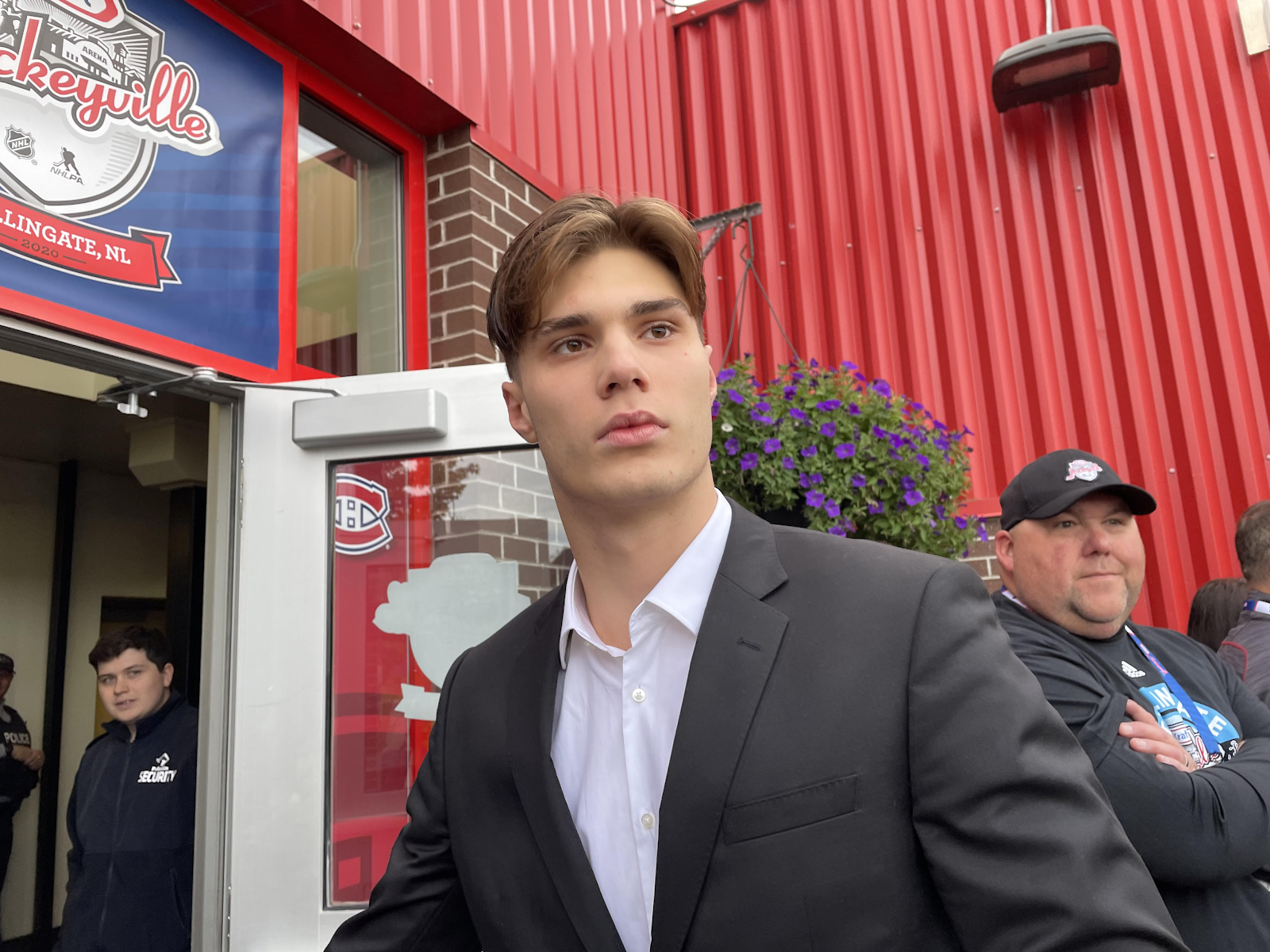Once upon a time, NHL teams had a manager and a coach. Sometimes, the manager was the coach and sometimes the coach was also a player. Not so anymore. Today's NHL teams have front offices to rival the playing roster.
The Canadiens, for example, have an executive vice president, a GM, an assistant GM, a director of player personnel, a director of amateur scouting and a special advisor to hockey operations. Behind the bench, there's the coach, three assistant coaches, a goalie coach and a pair of video coaches. There are four people in player development, three in analytics and another two in hockey development. That's 22 people, and it's not even counting the medical, training, equipment, communications and scouting staffs. It's a lot.
So, a fan might be forgiven for wondering what on earth all these people actually do all day.
Back in February, the Canadiens announced they were bringing in Vincent Lecavalier as a "special advisor."
Now, going on a year later, you might ask what is Vinny doing in Montreal, aside from being the head coach's good buddy?
Well, first of all, he's not actually in Montreal. He lives in Tampa. However, he was brought on board for a very special reason.
🏒🏒🏒🏒🏒🏒🏒🏒🏒🏒
June 27, 1998 was a beautiful summer day in Buffalo, New York. The sun was shining, a gentle breeze wafted in from the southwest and the NHL draft was set to go at the Marine Midland Arena.
Just two months past his eighteenth birthday and a stellar career as a junior in the QMJHL, centreman Vincent Lecavalier, standing an impressive 6'4", was the undisputed number-one prospect at that draft. After some nifty trade action involving the Florida Panthers and San Jose Sharks, the Tampa Bay Lightning had secured the first pick. Sure enough, when new owner Art Williams took the stage, Vinny was his choice.
"The new Tampa Bay Lightning is very proud and very excited to take back to our fans in Tampa Bay, the number-one amateur hockey player in the world, the number-one pick in the entire NHL draft, Vincent Lecavalier," Williams announced.
The kid was thrilled.
"When I got in the rink today, I had butterflies in my stomach," Lecavalier said at the time. "I'm really relieved everything's over and I got picked number one. So I'm very, very happy."
The day after the draft, the pressure to not only make the NHL, but to be, as Williams boasted "the Michael Jordan of hockey" began. As the team's franchise player for 14 years, that pressure never let up.
At 19, he was captain of the Lightning. By 20, he'd been stripped of the "C" because the team decided he wasn't mature enough. He had a difficult relationship with coach John Tortorella and high expectations from fans and media. While he never achieved "Michael Jordan" status, he scored 52 goals in a season, won the Stanley Cup, played Jean Beliveau in a movie, suited up for more than a thousand games with Tampa, earned a personal fortune and had his number retired by the team that drafted him.
He was also the frequent subject of trade rumours sending him to Montreal, where he had little interest in playing, knowing the pressure of being a homegrown superstar would likely crush him.
So, the man knows a lot about what it means to be the first-overall pick in the NHL draft and what can happen afterwards.
🏒🏒🏒🏒🏒🏒🏒🏒🏒🏒
When Lecavalier was hired, the Canadiens weren't guaranteed the first pick in the draft, but they were second-last in the NHL, one point ahead of Arizona. It was looking pretty likely they'd at least be in the running. At the draft lottery in May, they locked up the top spot, and then had to decide which player would best fulfill his promise. In the end, they took big, strong Juraj Slafkovsky, and Lecavalier's real work began...number one to number one.
"I'm working with Slafkovsky. It's his first year and we're trying to help him as much as we can. I cut his clips and then we work with the skills coach to try and help him in his process. Right now that's what I'm doing," he says.
"He's 18. I remember when I was 18, I didn't have a clue. I'm not saying he doesn't, but I'm saying you have to learn through experience. I try to bring what I can, trying to bring out the best in him."
"I watch him play every game," he continues. "He's way bigger than me. He's like 240. That's crazy. He's a big, big boy. But it's the knowledge. For me, from 18 to 30, you gain a lot of knowledge. The person who had the most knowledge for me was Marty St.Louis. When I started playing with Marty, I started getting better. You learn from the best minds, and Marty I think is the best player I've ever played with in terms of hockey IQ. You learn from different people, and that's what we're trying to do with Slafkovsky."
Lecavalier says he's pleased with Slafkovsky's work ethic and his quickness to learn. Right now the Slovakian teenager is his top priority, but the Canadiens have two more first-round choices coming up in 2023. While they're closer to the playoffs than the draft lottery at the season's quarter mark, the former first-overall on staff is preparing to help the team make the most of those draft picks.
"In January, I'll still focus on Slafkovsky, but I'll watch a lot of the top forty or fifty draft players for 2023, make sure I know all of them," he says. "First two rounds, and so when we get to the draft we have all the meetings and we can make decisions about players."
And when those future Habs arrive in Montreal, they'll have the advantage of learning from somebody who's literally been there before.




